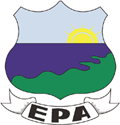Background
Liberia is endowed with rich marine and coastal resources which sustain the livelihoods of coastal communities. Nearly 58% of Liberia‘s population lives in coastal regions, which include mangrove forests that extend up to 25 miles inland. In a country where food security is a concern for over half of the population, the fishery sector provides about 65% of the population’s protein needs.
Mangroves are among the most productive and valuable ecosystems on earth, as well as the most undervalued. Mangroves in Liberia suffer from continual degradation due to a variety of factors, including urbanization, agricultural expansion, fuel wood harvesting, mining, and limited institutional presence.
Scope of work
The TEEB Liberia study assesses the pressures and threats on coastal mangroves by making a case for integrating the value of biodiversity and ecosystem services into coastal and marine planning policies. The project provides evidence of the benefits of community-based coastal and marine management, the introduction of alternative livelihood options, and the establishment of marine protected areas.
The study compares alternative scenarios for coastal mangrove management in Liberia and the resulting differences in the provisioning of ecosystem services (e.g. provisioning of food, regulation of extreme events, and cultural values) and biodiversity impacts, with a focus on vulnerable coastal population groups. The study consists of five study sites:
- Lake Piso Multiple Nature Reserve (Ramsar site)
- Marshall Wetland (Ramsar site)
- Montserrado Wetland (Ramsar site)
- Baculi, Grand Bassa County (sea turtle nesting site)
- Bafo Bay, Sinoe County (fishing ground and sea turtle nesting site)
The degradation of mangroves has both direct and indirect impacts on the provisioning of ecosystem services and biodiversity, which in turn affects the livelihoods of Liberian communities. The following ecosystem services are evaluated in this study:
![]() Provision of food: Mangroves provide nursery grounds for juvenile fish, which is important for fish stocks in both marine and freshwater ecosystems.
Provision of food: Mangroves provide nursery grounds for juvenile fish, which is important for fish stocks in both marine and freshwater ecosystems.
![]() Regulation of extreme events: Mangroves serve as shields from storms and floods, which are increasing in frequency and intensity because of climate change. Coastal areas in Liberia are highly vulnerable to climate-induced weather events.
Regulation of extreme events: Mangroves serve as shields from storms and floods, which are increasing in frequency and intensity because of climate change. Coastal areas in Liberia are highly vulnerable to climate-induced weather events.
![]() Cultural values: The study will document the cultural value of these ecosystem services, particularly for Lake Piso.
Cultural values: The study will document the cultural value of these ecosystem services, particularly for Lake Piso.
Publications and resources
Status: Ended
Other partners
This study is supported by the European Commission as part of the “Reflecting the Value of Ecosystems and Biodiversity in Policy-Making” project.


